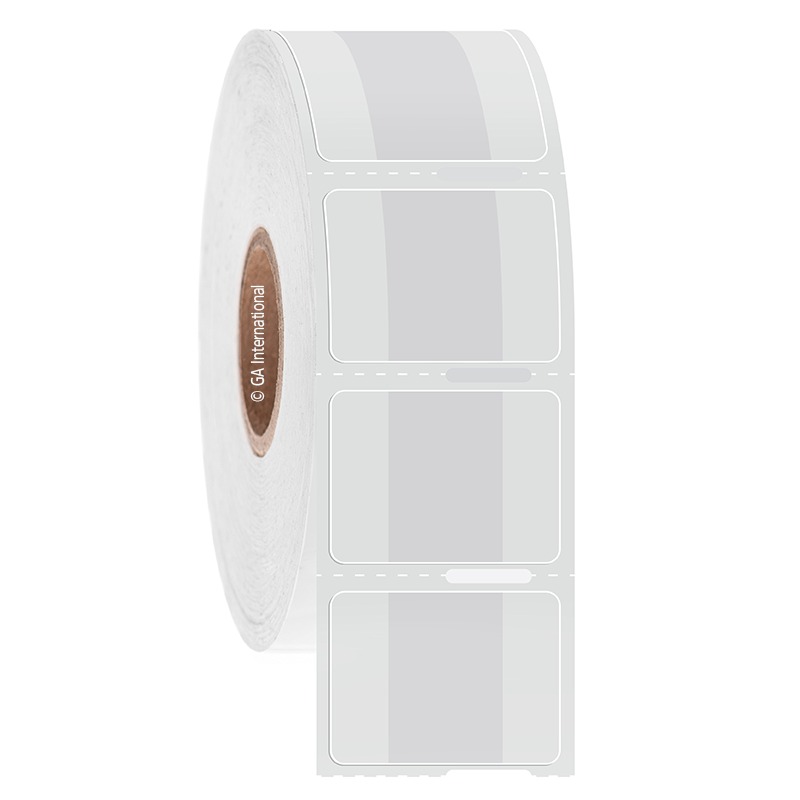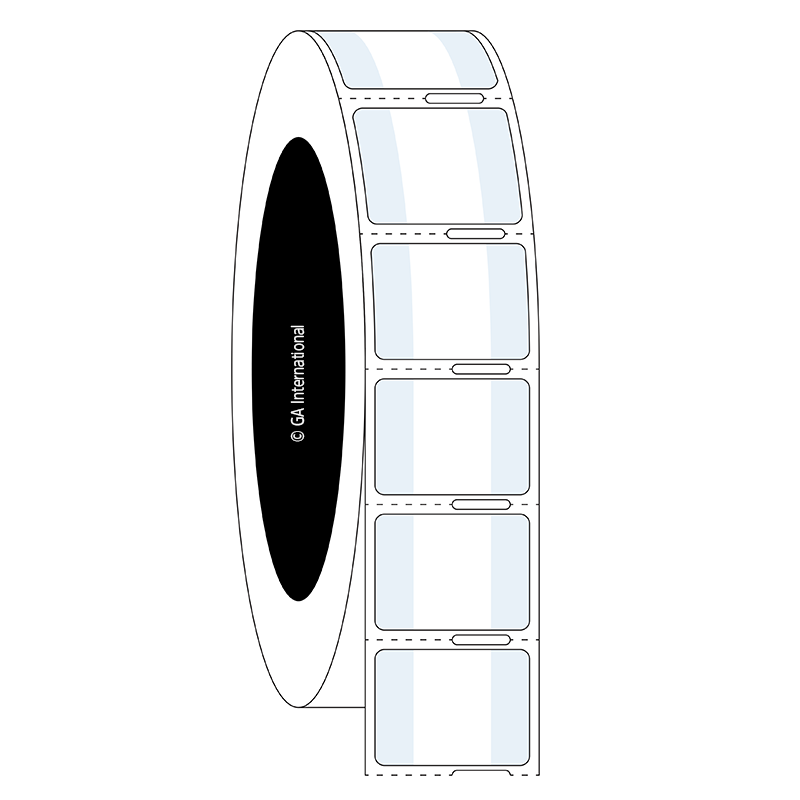To ensure proper adhesion, please remove excess frost prior to affixing the label.
To ensure proper adhesion, please remove excess frost prior to ... Read More
The label should wrap around and overlap onto itself for proper adhesion.
Description
CryoSTUCK® – Cryogenic Thermal-Transfer Labels for Frozen 2D-Barcode Tubes
- The labels can adhere quickly to already frozen vials (no thawing required)
- Ideal for long-term storage in cryogenic conditions (-196°C)
- Printable with all major thermal-transfer printer brands
Cryogenic labels, with a clear overlap area, designed to be applied directly, and rapidly adhere to frozen plastic, and glass cryo vials and tubes, which are difficult to label under deep-freeze conditions (-80°C/-112°F). Designed for long-term preservation in liquid nitrogen (-196°C/-321°F), -80°C (-112°F) freezers, and dry ice, and can withstand temperatures up to +100°C (+212°F). Labels can be printed with all major brands of thermal-transfer printers, or written on with our cryo markers. It is recommended that CryoSTUCK® labels are applied with an overlap of at least 0.25” to ensure proper adherence to the frozen surface.
Designed especially to be compatible with 2D (Datamatrix) barcoded, small volume vials such as Matrix™, BIOTUBE™, and CryzoTraq™, which are stored in special 96-place racks. These tubes are compatible with robotic liquid handling systems, standard multichannel pipettors, and auto sampling devices that conform to standard 96-well microplate spacing and footprint.
Specifications
Size: 1″ x 0.75"
(25.4 mm x 19.1 mm)
Printable Area (W x H): 0.5″ x 0.75"
(12.7 mm x 19.1 mm)
Labels/Roll: 1000 (1″ core), 4000 (3″ core)
Perforated: Yes,No
Media Sensing: Notch
Temperature Range: -196°C to +100°C
(-320.8°F to 212°F)
Min. Application Temperature: -80°C
(-112°F)
Adhesive: Permanent
Printing Methods: Thermal-Transfer
Features: Frozen Vials, Wrap-Around
Resistances: Alcohol Wiping, Cryogenic (-196°C), Deep-Freeze (-80°C)
Recommended Ink Ribbons: XAR-Class
Class: L2FS
Brand: CryoSTUCK®
Color(s): White + Transparent
Reviews
Frequently Asked Questions
Yes, thermal CryoSTUCK® labels require a thermal-transfer ribbon to achieve the proper printout. These cryo labels require a XAR ribbon of the same width or larger.
Yes, our unique CryoSTUCK labels are now available in sheet format, for printing with laser printers. For our Laser CryoSTUCK labels click here.
Yes, CryoSTUCK labels have been especially designed for the purpose of labeling already frozen vials and tubes. These cryogenic labels can be applied at -80°C/-112°F, eliminating the need to thaw valuable samples.
Yes, CryoSTUCK labels can be used to label samples prior to storing them in low-temperature freezers and liquid nitrogen tanks.
No, CryoSTUCK labels are coated with an extra-permanent adhesive, that is not made for easy removal. For removable cryogenic solutions see here.
Please consult our handy sizing guide where you will find recommendations for the most common vial/tube sizes.
Label design and barcoding software can be used to create templates that conform to the size of your label. You can then insert design elements within the template, for easy printing.
No, we don’t recommend our standard CryoSTUCK labels for this purpose. To cover-up existing labels, our blackout CryoSTUCK labels will conceal pre-existing information, while our clear CryoSTUCK labels can be applied over an existing label, acting as a laminate to reinforce it.
For optimal adhesion, wipe away any visibly accumulated frost with a clean lint-free disposable wipe (e.g: KimWipe™). Apply the edge of the label first and press firmly to anchor it, while avoiding excessive contact with the adhesive. If you have a wrap-around CryoSTUCK, apply the printable area first. Then press the label securely into position along the vials’ entire circumference. Our thermal-transfer format CryoSTUCK® labels require an overlap of at least 0.25” to produce a secure adhesion to frozen vials and tubes.























